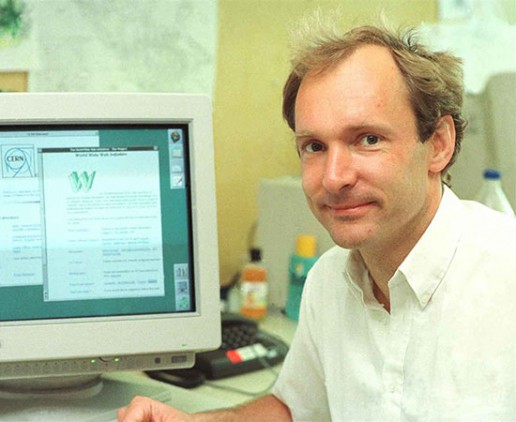The World Wide Web will hit the big 3-0 next year, but its “dad” thinks “sonny boy” has gotten a bit too big for its britches.
To celebrate the 29th birthday of the World Wide Web, its inventor, Tim Berners-Lee, wrote an open letter in which he shared some of his key concerns about his creation. For starters, Berners-Lee advocates for closing the “digital divide” that prevents disadvantaged groups from accessing the Web. “You’re more likely to be offline if you are female, poor, live in a rural area or a low-income country, or some combination of the above,” he writes. “If we do not invest seriously in closing this gap…an entire generation [will be] left behind.”

Another point of concern for Berners-Lee is that too few companies control too much of the content that goes online. “What was once a rich selection of blogs and websites has been compressed under the powerful weight of a few dominant platforms. This concentration of power creates a new set of gatekeepers, allowing a handful of platforms to control which ideas and opinions are seen and shared.” These dominant platforms also prevent the creation of startups and, as a result, stifle the potential for innovation that they offer.
While Berners-Lee view of the Web seems dire, he is not without solutions. He advocates for policies and business models that would expand Web accessibility in traditionally disconnected communities. Further, he proposes “a legal or regulatory framework that accounts for social objectives” rather than merely generate profit.
But in order to create substantial change, Berners-Lee suggests, powerful online platforms like Facebook and Twitter have to be more willing to cede control. The project he has in mind involves nothing less than “thinking about how we align the incentives of the tech sector with those of users and society at large, and consulting a diverse cross section of society in the process.” Or, to borrow a catchphrase from a notable tech giant: Think different.
World Wide Web - Wikipedia
The World Wide Web has been central to the development of the Information Age and is the primary tool billions of people use to interact on the Internet. Web pages are primarily text documents formatted and annotated with Hypertext Markup Language (HTML).
Of course, if Berners-Lee were writing his open letter today, he might have a good deal more to say about online security, given the recent scandal involving Facebook and Cambridge Analytica. Be that as it may, Berners-Lee and his World Wide Web Foundation do seem to have some good ideas worth considering. If you have any further recommendations for how to improve the Web, let us know in the comments below!